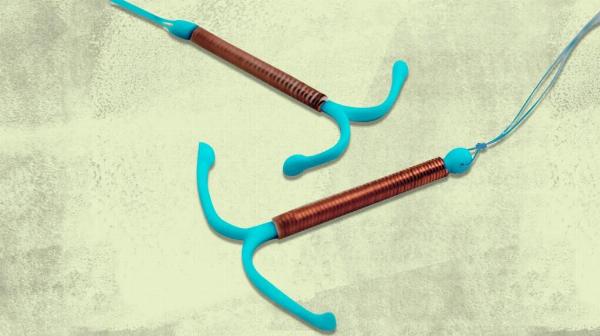Dubai's Contraception Landscape: Modern Solutions for Family Planning

Strong 8k brings an ultra-HD IPTV experience to your living room and your pocket.
Dubai, a vibrant and rapidly growing city in the United Arab Emirates (UAE), is not just a hub for luxury tourism, trade, and innovation, but also a beacon of progressive healthcare. One of the critical aspects of healthcare in Dubai is family planning and contraception, reflecting the city's commitment to the well-being of its residents. This article explores the Contraception in Dubai, highlighting modern solutions, cultural influences, and the role of healthcare providers in promoting family planning.
The Importance of Family Planning
Family planning is crucial for individual health, women's empowerment, and overall societal development. Effective family planning methods allow couples to decide the number and spacing of their children, leading to improved maternal and child health outcomes. In Dubai, the government recognizes the significance of family planning and has implemented various initiatives to provide access to modern contraceptive methods.
Modern Contraceptive Methods Available in Dubai
Dubai offers a range of modern contraceptive methods that cater to diverse needs and preferences. These methods can be broadly categorized into hormonal and non-hormonal options.
Hormonal Methods
Oral Contraceptives: Commonly known as birth control pills, these are widely used due to their effectiveness and ease of use. They contain hormones that prevent ovulation and are available by prescription in Dubai.
Injectable Contraceptives: These are administered by a healthcare provider and offer protection for several months. They are a convenient option for women who prefer not to take a daily pill.
Hormonal Intrauterine Devices (IUDs): These small devices are inserted into the uterus and release hormones over a long period, providing effective contraception for several years.
Implants: These are small rods placed under the skin of the upper arm, releasing hormones gradually to prevent pregnancy for up to three years.
Non-Hormonal Methods
Copper IUDs: These devices do not release hormones but instead use copper to prevent sperm from fertilizing an egg. They can last up to ten years and are highly effective.
Barrier Methods: Condoms, diaphragms, and cervical caps fall into this category. They are widely available and also provide protection against sexually transmitted infections (STIs).
Natural Family Planning: This method involves tracking the menstrual cycle to determine fertile days and abstaining from intercourse during that period. While it requires diligence and education, it is a hormone-free option.
Accessibility and Availability
In Dubai, contraceptives are accessible through various channels including hospitals, clinics, and pharmacies. Public and private healthcare providers play a significant role in ensuring that individuals have access to the information and resources they need to make informed choices about family planning.
Public Healthcare Services
Dubai Health Authority (DHA) operates several public health centers that provide family planning services. These centers offer counseling, contraceptive supplies, and follow-up care. The government also conducts awareness campaigns to educate the public about the importance of family planning and the options available.
Private Healthcare Services
Private clinics and hospitals in Dubai offer a wide range of family planning services. These facilities often provide a more personalized approach, catering to the specific needs and preferences of individuals. Many expatriates and residents prefer private healthcare due to shorter waiting times and perceived quality of care.
Pharmacies
Contraceptives are available over the counter at pharmacies across Dubai. Pharmacists are trained to provide advice on different contraceptive methods, making it easier for individuals to access these services without a prescription for certain products like condoms and Emergency Contraception.
Cultural Considerations and Challenges
Dubai is a cosmopolitan city with a diverse population, including expatriates from various cultural and religious backgrounds. This diversity influences attitudes towards contraception and family planning.
Religious and Cultural Influences
Islam, the predominant religion in Dubai, has specific teachings regarding contraception. While permanent methods like sterilization are generally discouraged, temporary methods are accepted if they do not harm health. Religious leaders and scholars often play a role in guiding individuals on family planning practices that align with their faith.
Education and Awareness
One of the challenges in promoting family planning is the level of awareness and education among the population. Despite the availability of contraceptive methods, some individuals may lack sufficient knowledge about their use and benefits. The government and non-governmental organizations (NGOs) are working to bridge this gap through educational programs and outreach initiatives.
The Role of Healthcare Providers
Healthcare providers in Dubai are at the forefront of promoting family planning and providing contraception services. They play a crucial role in educating individuals, dispelling myths, and addressing concerns related to contraceptive use.
Counseling and Support
Doctors, nurses, and midwives provide counseling to help individuals choose the most suitable contraceptive method. This involves discussing the pros and cons of each method, considering health conditions, lifestyle, and personal preferences.
Continuous Training and Development
To ensure high-quality care, healthcare providers undergo continuous training and development. This includes staying updated with the latest advancements in contraceptive technology and best practices in family planning.
Future Directions
Dubai's commitment to advancing healthcare includes ongoing efforts to improve family planning services. Future directions may involve expanding access to newer contraceptive technologies, enhancing education and awareness campaigns, and fostering greater collaboration between public and private sectors.
Technological Innovations
The adoption of digital health technologies can further improve access to family planning services. Telemedicine, mobile health apps, and online consultations can provide individuals with convenient and confidential ways to seek advice and access contraceptive services.
Policy and Advocacy
Continued advocacy for supportive policies and regulations will ensure that family planning remains a priority in Dubai's healthcare agenda. This includes addressing any barriers to access and ensuring that all individuals can make informed choices about their reproductive health.
Conclusion
Dubai's contraception landscape reflects the city's dynamic approach to healthcare, balancing modern solutions with cultural sensitivities. Through accessible services, ongoing education, and the dedication of healthcare providers, Dubai is paving the way for improved family planning and reproductive health. As the city continues to grow and evolve, its commitment to empowering individuals through informed choices remains steadfast, ensuring a healthier and more prosperous future for all its residents.
Read more Future Trends in Contraception in the UAE
Note: IndiBlogHub features both user-submitted and editorial content. We do not verify third-party contributions. Read our Disclaimer and Privacy Policyfor details.


